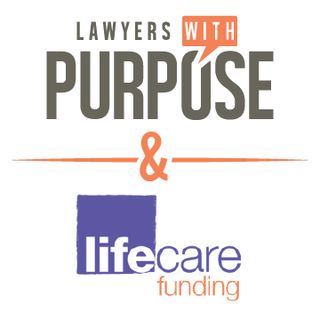Too often seniors who own life insurance policies will surrender them or allow them to lapse without realizing they can access a higher conversion value that can be used to pay for long-term care supports and services. Many policy owners who are getting ready for long-term care face tough choices about their policy – can they afford to continue paying premiums, and how will the policy affect Medicaid eligibility? Many are forced to abandon their policies despite having made premium payments for years.
 But there is a better option for a life insurance policy – converting it into a Long Term Care Benefit Plan. More and more elder law attorneys are coming to realize this is a viable option for clients in search of funding options for senior care. Instead of abandoning a policy they have been making payments on for years, they are selling the policy into a tax-free benefit** account that is both Medicaid and VA Aid & Attendance qualified.
But there is a better option for a life insurance policy – converting it into a Long Term Care Benefit Plan. More and more elder law attorneys are coming to realize this is a viable option for clients in search of funding options for senior care. Instead of abandoning a policy they have been making payments on for years, they are selling the policy into a tax-free benefit** account that is both Medicaid and VA Aid & Attendance qualified.
The range policy owners can receive is 20%-60% of the death benefit, and their money goes into an irrevocable, FDIC-insured account that makes monthly payments directly to any form of senior care they choose. If their needs change, the account can be adjusted to pay for escalating costs and/or changing care providers and environments.
Any form of life insurance policy is eligible to be converted, including term, whole, group and universal life policies. To qualify, the policy must have a minimum death benefit of $50,000 and the insured must have an immediate need for care (typically within 90 days or less from time of enrollment). Think of a Long Term Care Benefit Plan as the opposite of long-term care insurance. To buy long-term care insurance, you must be young and healthy. To convert a life insurance policy into a Long Term Care Benefit Plan, you must have an immediate need for care (the older and sicker you are, the higher percentage amount you will get for the policy) and the in-force policy can't be less than $50,000 of death benefit.
As an alternative to abandoning a policy for little to nothing in return, converting a life policy into a Long Term Care Benefit Plan provides the highest possible value in the form of a protected account that is tax-advantaged as well as Medicaid and VA qualified.
Please join Victoria L. Collier, along with Chris Orestis of Life Care Funding on Thursday, October 15th at 3:00 EST to learn more about this option for clients in search of funding options for senior care. Click here to register now for this FREE WEBINAR.
** Please note that the actual tax treatment of the proceeds from the sale of a life insurance policy will depend on many factors, including but not limited to who owns the policy, the health of the insured, the use of proceeds, the size of the estate and the state in which the policy owner lives (for purposes of state taxation). This material does not constitute tax, legal or accounting advice, and neither Life Care Funding, LLC nor any of its agent, employees, or representatives are in the business of offering such advice. The information above cannot be used by any taxpayer for the purpose of avoiding any IRS penalty. Anyone interested in selling a life insurance policy in order to fund Long Term Care Benefits should seek professional advice based on his or her particular circumstances from an independent tax advisor.
Roslyn Drotar – Lawyers With Purpose



Lots of good information here. Thank you for providing this resource.
Thank you Death Care Network!